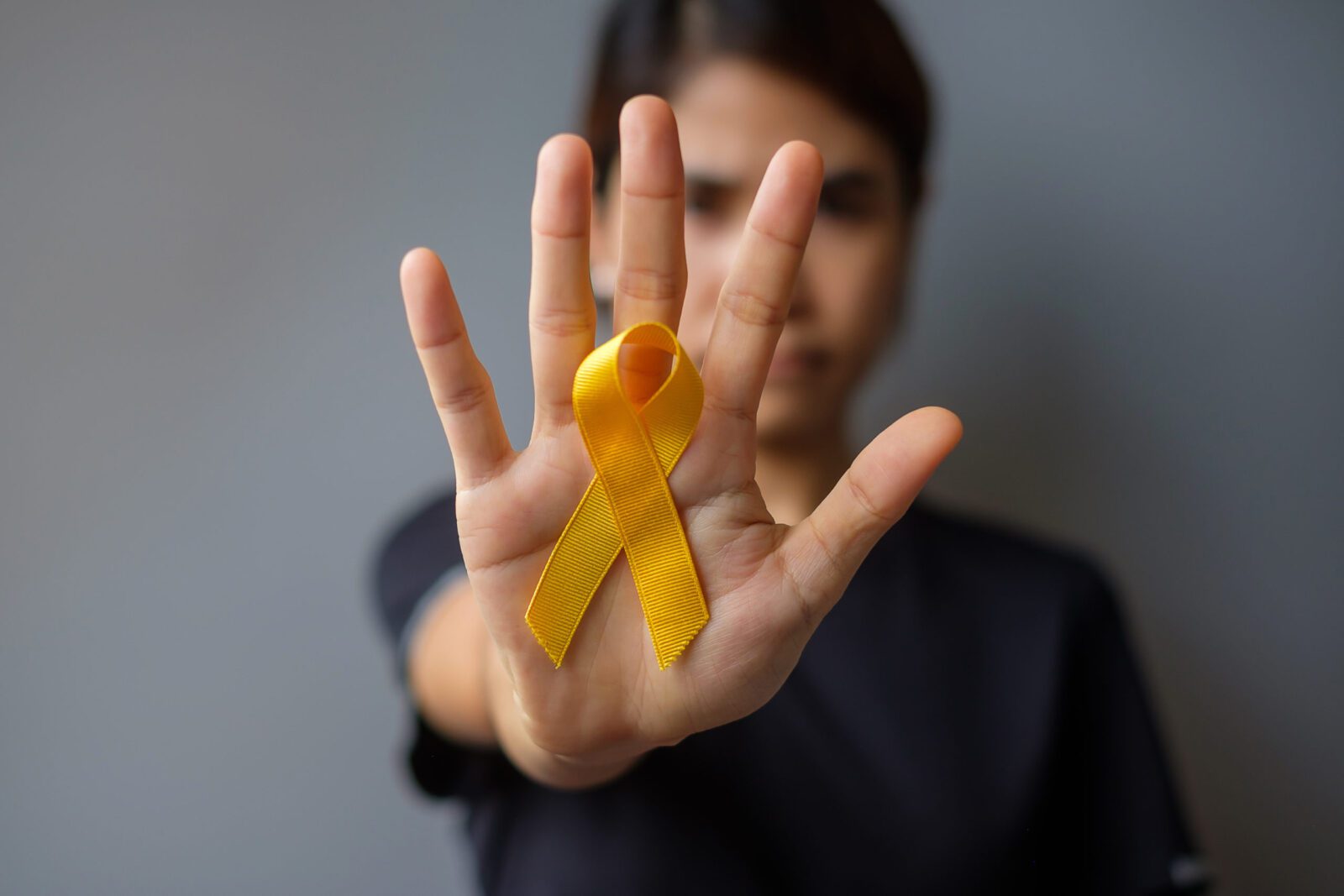Suicide Awareness Month: When To Worry And What To Do

September may be Suicide Awareness Month, but there’s no month of the year that it’s not important to be aware of the signs that someone you care about may be considering suicide. Any direct suicidal threats should always be taken seriously, but many people who go on to take their lives will indicate their intentions in less obvious ways.
For example, someone may talk about feeling hopeless or wanting to die without expressing a specific intent to kill themselves. You should also be on the lookout for someone who says they wish they’d never been born, that they have no reason to live, that they feel trapped, that they feel like a burden to others, that they are in unbearable pain, or that they cannot picture a future.
Even if they might at first seem to be disguising these alarming thoughts as a joke, it’s worth following up to find out if there was a kernel of truth behind the supposed humor. Furthermore, though the most common mental condition correlated with suicide is depression, not everyone who is depressed will show obvious symptoms of the disorder.
Subtler signs of depression include changes in eating or sleeping patterns, rapid weight loss or gain, increased use of mind-altering substances, or other uncharacteristically risky behavior. You might also notice a pattern of social withdrawal, that someone is isolating themselves, failing to follow through on commitments, or losing interest in their usual everyday activities.
Sadness also isn’t the only mood that can serve as a sign of suicidality. You should also be worried about expressions of unbearable guilt or shame or for increased anger or aggressiveness, including talk of somehow seeking revenge, which could be a sign that someone intends to lash out at themselves rather than others. Someone who is suicidal may also appear unusually distractible, anxious, or agitated, especially when expressing some of the thoughts listed above.
Somewhat counterintuitively, a suddenly elevated mood in someone who has been experiencing a prolonged depression may also be a sign that they intend to act on suicidal thoughts. If they view suicide as a solution that will rid them of the pain they have been feeling, they may feel relieved or at peace to have come to the decision to end their lives.
You might also notice someone getting their affairs in order, saying goodbye in a way that feels final, or giving away prized possessions without any other logical explanation for doing so. Morbid as it sounds, you also need to be on the lookout for potential suicide methods. An out of the blue purchase of a gun or other weapon or accumulating medication or other drugs for an overdose may also betray suicidality.
In someone who has expressed suicidal intent or who you suspect may be suicidal, you might also want to be on alert for signs that they have taken an overdose without telling anyone, in which case you should seek medical attention immediately.
If you do notice any of these warning signs in someone you care about, the first thing you should do is ask them about it directly, at the first opportunity you have to do so. You are unlikely to put the idea of suicide into someone’s head just by bringing it up or to trigger them to act on any suicidal feelings.
On the contrary, someone who is suicidal may be relieved that you are taking their pain seriously or to have someone to confide in about these incredibly painful thoughts. Even if they are not actually suicidal, the person you confront may still be grateful for your support or the affirmation that you care enough about them to inquire about their well being. If you are wrong, the worst case scenario is an awkward or unpleasant conversation, but if you are right, you could save a life.
If you do determine someone is suicidal, avoid making them feel bad about their suicidal feelings, minimizing their pain, giving advice that could be misinterpreted, or engaging in a philosophical debate about the value of life.
Instead, you should listen to them as calmly, non-judgmentally, and actively as you can, and try to convey that you are there for them, that you care about them and that what they are going through has not affected your feelings about them as a person. Try to reassure them that help is available, and to encourage them to seek mental health treatment or to contact their doctor or therapist. To give further support, you can even offer to help them find a mental health provider or to drive them to their appointment.
You also shouldn’t end the conversation until you have determined that the person is not in any immediate danger by inquiring directly about whether they have a plan to kill themselves and when they intend to act on it. If they do, offer to help them get rid of anything that could be potentially lethal, and, if you determine that they are in immediate danger, do not leave them alone. You may need to contact emergency services or to escort them to the ER.
When in doubt about what to do, you can also call the National Suicide Prevention Lifeline at 1-800-273-8255 or text TALK to 741741 to connect with a trained crisis counselour who can help you further asses the situation, or you can encourage the person you are worried about to reach out themselves.
After you have determined that the person you are worried about is safe, you can address any impact the confrontation has had on your own mental health, perhaps reaching out to your own support system.
Unfortunately, many of the signs that someone is suicidal can be so subtle they might only become apparent in retrospect, which doesn’t mean you should blame yourself if you do fail to pick up on them. But staying as informed, alert, and empathetic as possible could help you make a life or death difference for someone you love.
Suicide prevention always starts with being attentive to mental health, and for some, addiction treatment can be a part of the journey towards holistic wellness. For more information about sober living in Florida, call the RECO Institute at 561-665-5925!















